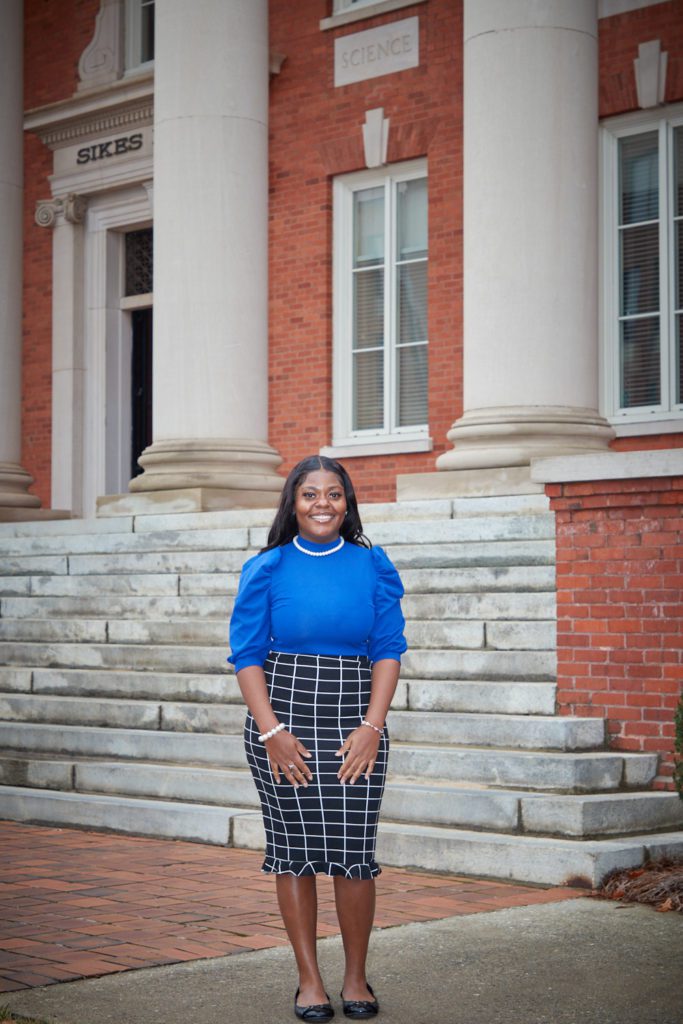Clemson University issued the following announcement on December 15.
Amoira Rush was sitting in an Easter Sunday church service the spring of her senior year in high school when she received an email telling her she had been accepted into the Clemson University Honors College.
The email came just days before National College Decision Day, the May 1 deadline for college applicants to decide which school they’ll attend in the fall.
“I considered it to be divine intervention,” Rush said.
Rush was an academic superstar in her hometown of Andrews, a small, rural city in South Carolina’s Lowcountry. She was the valedictorian of her class at C.E. Murray High School in nearby Greeleyville. She was also a recipient of the prestigious Gates Scholarship, which meant she could have attended any university in the country.
Meant to be
“I knew Clemson was where I was meant to be,” she said.
Rush will graduate this month with a degree in biological sciences and a minor in psychology. She plans to go to medical school and become an OB-GYN. Eventually, she wants to return home to serve the community where she grew up.
Andrews has fewer than 3,000 residents in Williamsburg County, part of a section of South Carolina along Interstate 95 that became known as the “Corridor of Shame” after a 2005 documentary chronicled the poor condition of schools in the area. About two-thirds of Andrews’ residents are Black; one in four live in poverty.

Amoira Rush earned a degree in biological sciences and plans to go to medical school to become an OB-GYN.
“I want to have an impact,” Rush said. “Women in my community must travel for miles to Georgetown or Pawley’s Island to even have access to those types of doctors. There’s such a need for medical care there. We’re still fighting to get our own hospital. It’s just limited access. There’s limited access to a lot of things.”
Although Rush knew that Clemson was “home,” she felt lost when she arrived for her first semester.
That all changed with COSMIC — the College of Science Mentoring and Inclusion Collaborative — an award-winning ecosystem of support for students in the College of Science that matches incoming students with student mentors from similar backgrounds and interests. Besides mentorship, the program includes study halls, service-learning opportunities, an awards ceremony and more. COSMIC has various affinity groups, including those for racial groups traditionally underrepresented in science fields and for women pursuing science degrees.
“COSMIC is the reason I continued my studies here,” she said. “It provided a safe place where I could just be myself. I could ask questions and not feel foolish. As a person of color, you can get intimidated. You get imposter syndrome, like maybe you don’t belong because you don’t have professors that look like you or peers that look like you. But COSMIC changed my mental perspective of things. Yes, I belonged. Yes, it’s OK to ask questions. Yes, it’s OK if you don’t know now because you will know soon. I’ve had my share of obstacles and challenges, but I never succumbed to them. I always said that I would come back stronger.”
Rush is now a mentor in COSMIC, helping students in those same shoes. She is also president of the Mu Psi Chapter of the Sigma Gamma Rho sorority. She is treasurer of the Black Honors Association, a group she helped start in the Honors College. She is also a member of the Minority Association of Premedical Students.
Leaving a legacy
“I’m most proud of the legacy I’m leaving,” she said. “I’ve been involved most of my time here, especially within the Black community. I’ve worked to get our voices heard and for us to be represented on campus so that when students come here, they see the diversity is there not just on paper but in each little pocket of the university.”
In March, the South Carolina Department of Commerce selected her as the Rural High School Success Story of the Year.
Rush is giving back to her hometown as well. During summers, she worked as a volunteer tutor. She has also worked with the South Carolina Commission on Higher Education to assist students in filling out financial aid applications in poverty-stricken, rural communities so they can have the same opportunities as she did.
“My mother is a major role model in my life, and she just kept telling me that the world was mine and to go for what I want. I am a hard worker, and I have the determination within myself to continue to move forward. I’m not a quitter,” she said. “Knowing that I can keep going forward and be that light for someone else, I think that’s been the biggest thing for me. When people have instilled confidence in you, you want to do the same for the next group. When you have a strong support team behind you, you feel like you can accomplish anything and conquer the world.”
Original source can be found here.




 Alerts Sign-up
Alerts Sign-up